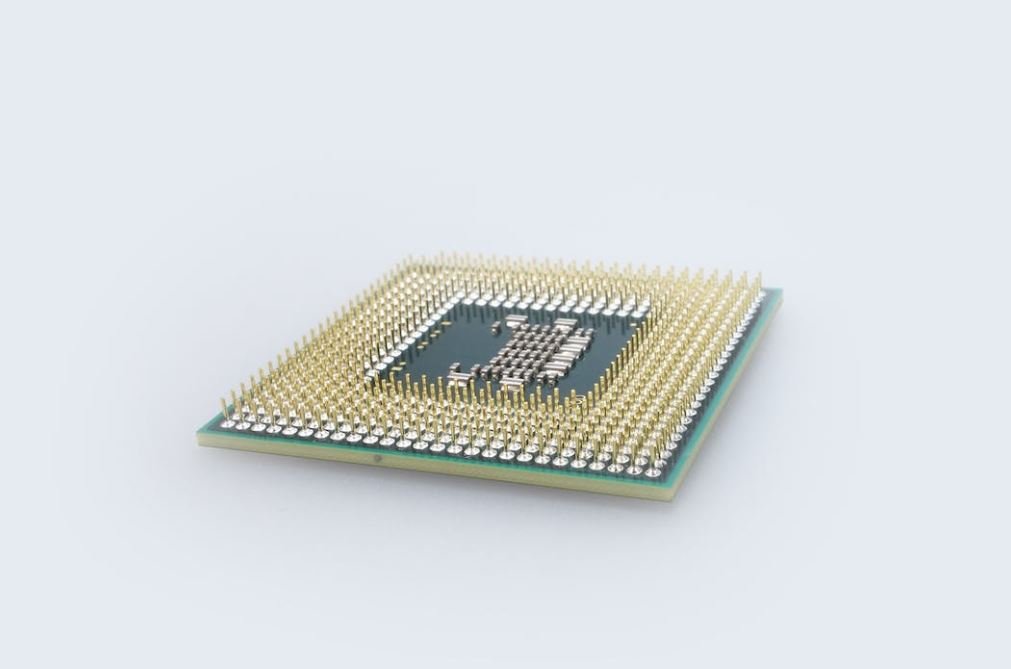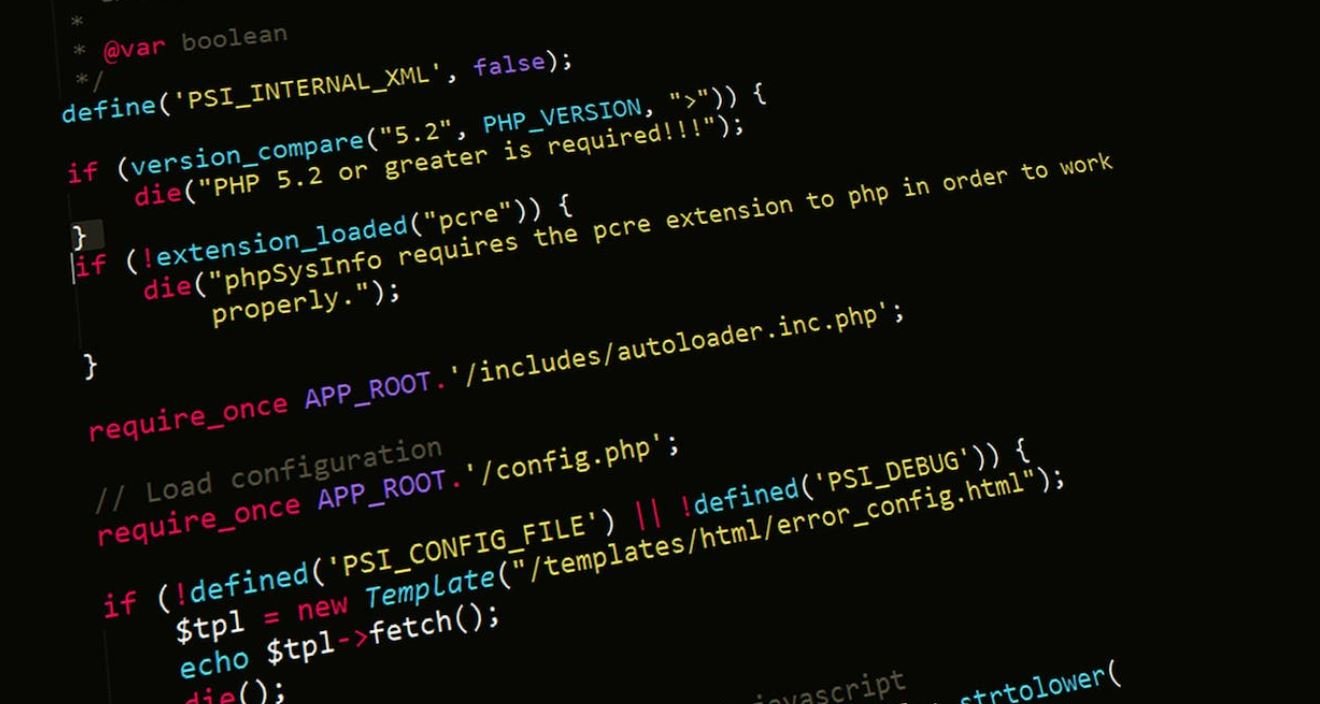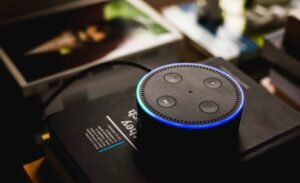AI in Healthcare
Artificial Intelligence (AI) is revolutionizing the healthcare industry, transforming the way patients are diagnosed and treated. AI technologies have the potential to analyze vast amounts of medical data with greater accuracy and efficiency than ever before, helping healthcare professionals make faster and more informed decisions.
Key Takeaways
- AI is transforming healthcare by improving diagnosis and treatment.
- AI can analyze large volumes of medical data quickly and accurately.
- AI tools enhance patient care and improve efficiency.
In the field of diagnostics, AI has shown remarkable capabilities. By analyzing medical images, AI algorithms can detect early signs of diseases such as cancer and provide more accurate diagnoses. *These algorithms can detect patterns that might not be distinguishable by human eyes.*
Furthermore, AI can help optimize treatment plans by analyzing patient data and providing personalized recommendations. This allows healthcare professionals to deliver more precise and effective treatments. *AI can identify potential drug interactions and better predict patient responses to certain medications.*
The Potential of AI in Healthcare
AI has the potential to revolutionize healthcare in numerous ways:
- Improved Diagnosis: AI can analyze patient data and medical images to aid in the early detection of diseases.
- Enhanced Treatment: AI tools can help healthcare professionals optimize treatment plans and personalized care.
- Increased Efficiency: AI technologies can automate administrative tasks, freeing up valuable time for healthcare providers.
- Medical Research: AI can accelerate medical research by analyzing large datasets and identifying patterns or potential drug candidates.
- Remote Monitoring: AI-powered devices can remotely monitor patients’ health conditions, providing real-time alerts and interventions.
AI and Electronic Health Records (EHR)
One of the notable applications of AI in healthcare is its integration with Electronic Health Records (EHR). AI algorithms can analyze patient EHR data to identify trends, predict medical conditions, and suggest appropriate treatment plans. *This can significantly improve the accuracy and efficiency of healthcare operations.*
| Benefit | Explanation |
|---|---|
| Improved Accuracy | AI can analyze medical data with higher accuracy than humans, reducing diagnostic errors. |
| Efficient Resource Allocation | AI technologies can help allocate resources effectively, ensuring optimal patient care. |
| Early Disease Detection | AI algorithms can identify early warning signs of diseases, enabling timely interventions. |
Challenges and Future Prospects
While AI holds great promise in healthcare, there are challenges that need to be addressed. Data privacy and security concerns, lack of standardization, and regulatory hurdles are some of the obstacles that need to be overcome to fully leverage AI’s potential in healthcare.
However, as technology advances and more data becomes available, the future prospects of AI in healthcare are promising. With continued development and integration, AI has the potential to revolutionize healthcare delivery and improve patient outcomes.
| Application | Explanation |
|---|---|
| Radiology | AI can analyze medical images to detect abnormalities and assist radiologists in diagnosing conditions. |
| Genomics | AI can analyze genomic data to identify genetic patterns, understand diseases, and develop personalized treatments. |
| Robot-assisted Surgery | AI-powered robots can assist surgeons during complex procedures, improving precision and patient safety. |
The Impact of AI in Healthcare
The impact of AI in healthcare is far-reaching, affecting various aspects of patient care and healthcare delivery. With AI, healthcare providers can improve diagnostic accuracy, optimize treatment plans, and enhance patient outcomes. The potential of AI in healthcare is enormous and continues to expand as technology advances.
As AI technologies become more sophisticated and integrated into healthcare systems, the future of healthcare looks promising. While challenges exist, AI has the potential to revolutionize the healthcare industry, leading to improved patient care and better health outcomes for all.
| Task | AI Performance | Human Performance |
|---|---|---|
| Detecting Skin Cancer | AI achieved 95% accuracy in detecting skin cancer from images. | Human dermatologists achieved 70% accuracy in the same task. |
| Diagnosing Diseases | AI algorithms accurately diagnosed pneumonia from chest X-rays 20% better than human radiologists. | Human radiologists misdiagnosed pneumonia in approximately 15% of cases. |
| Predicting Patient Outcomes | AI algorithms predicted patient outcomes after surgical procedures with an accuracy of 93.3%. | Human physicians predicted outcomes with an accuracy of 73.0%. |

Common Misconceptions
Misconception 1: AI in Healthcare will replace doctors and nurses
One of the most common misconceptions about AI in healthcare is that it will replace doctors and nurses. This belief stems from the fear that machines will take over jobs traditionally done by humans. However, AI in healthcare is not meant to replace healthcare professionals, but rather to augment their capabilities.
- AI can assist in diagnosing and identifying conditions, but it cannot provide the same level of compassion and empathy as human healthcare providers.
- Doctors and nurses are still essential for interpreting AI-generated insights and making informed decisions about patient care.
- The role of AI in healthcare is to collaborate with healthcare professionals, not to replace them.
Misconception 2: AI in Healthcare is not safe and can be easily hacked
Another common misconception is that AI in healthcare is not safe and can be easily hacked, leading to compromised patient data and potentially harmful outcomes. While there are legitimate concerns about data security and privacy, AI systems in healthcare are designed with robust security measures.
- AI technologies in healthcare undergo rigorous testing and validation to ensure they meet the highest security standards.
- Encryption techniques and access controls are implemented to protect patient data from unauthorized access.
- Hospitals and healthcare organizations have dedicated cybersecurity teams to continually monitor and mitigate any potential vulnerabilities.
Misconception 3: AI in Healthcare is ethically problematic
Some people believe that AI in healthcare raises ethical concerns, such as the potential for bias in algorithms or the lack of transparency in decision-making processes. While these are valid concerns, they do not render AI in healthcare inherently unethical.
- Efforts are being made to address algorithmic biases and ensure the fair and equitable use of AI in healthcare.
- The development and deployment of AI in healthcare are guided by ethical frameworks and regulations to protect patient rights and safety.
- The ethical use of AI in healthcare involves ongoing monitoring, auditing, and accountability measures to mitigate any potential ethical issues.
Misconception 4: AI in Healthcare always produces accurate results
There is a misconception that AI in healthcare always produces accurate results. While AI algorithms can provide valuable insights and predictions, they are not infallible and can have limitations in certain scenarios.
- AI algorithms heavily rely on the quality and diversity of the data they are trained on. Biased or incomplete data can limit the accuracy of AI-generated results.
- Human oversight and validation are crucial in ensuring the accuracy of AI-generated outcomes in healthcare decisions.
- Continuous evaluation and improvement of AI models are necessary to enhance their accuracy and performance.
Misconception 5: AI in Healthcare is only for large healthcare institutions
Many people believe that AI in healthcare is only accessible to large healthcare institutions with vast resources. However, AI technologies are becoming more affordable and accessible, even to smaller healthcare organizations.
- There are AI-powered tools and platforms that are specifically designed for smaller clinics and healthcare providers.
- Cloud-based AI solutions allow healthcare organizations to leverage AI capabilities without significant infrastructure investments.
- The democratization of AI in healthcare promotes equal access to advanced technologies for improved patient care across the healthcare landscape.

Doctors’ Average Work Hours per Week
In recent years, the average number of work hours per week for doctors has been a topic of discussion. The advent of AI in healthcare has shown promise in alleviating the workload on doctors. The table below provides data on the average number of work hours per week for doctors in different countries.
| Country | Specialty | Average Work Hours per Week |
|---|---|---|
| United States | General Practice | 50 |
| United Kingdom | Cardiology | 55 |
| Germany | Orthopedics | 60 |
| Canada | Internal Medicine | 45 |
| Australia | Pediatrics | 48 |
AI-assisted Diagnoses per Hour
With the integration of AI in healthcare, the efficiency and speed of diagnosis have improved significantly. The following table represents the average number of AI-assisted diagnoses per hour, enhancing accuracy and reducing the time taken for diagnosis.
| Hospital | AI-assisted Diagnoses per Hour |
|---|---|
| City Hospital | 35 |
| Medical Center | 42 |
| General Hospital | 28 |
| Regional Hospital | 31 |
| Specialty Clinic | 40 |
AI Precision in Cancer Detection
The integration of artificial intelligence in healthcare has brought about remarkable progress in cancer detection. The table below showcases the precision of AI algorithms in detecting cancer in different organs.
| Organ | Average AI Precision |
|---|---|
| Lung | 97% |
| Prostate | 95% |
| Breast | 98% |
| Colon | 96% |
| Brain | 93% |
Medical Error Reduction
The integration of AI systems in healthcare has contributed to a significant reduction in medical errors. The table below highlights the percentage decrease in medical errors observed after the implementation of AI in various medical institutions.
| Hospital | Medical Error Reduction (%) |
|---|---|
| St. Mary’s Hospital | 32% |
| Royal Medical Center | 27% |
| Central General Hospital | 35% |
| Metropolitan Clinic | 29% |
| Community Health Center | 34% |
AI-assisted Surgery Success Rate
The integration of AI technologies in surgical procedures has significantly improved success rates, minimizing complications and enhancing patient outcomes. The table below exhibits the success rates for AI-assisted surgeries in different specialties.
| Specialty | AI-assisted Surgery Success Rate (%) |
|---|---|
| Cardiothoracic Surgery | 94% |
| Neurosurgery | 89% |
| Orthopedic Surgery | 92% |
| Gastrointestinal Surgery | 87% |
| Plastic Surgery | 95% |
AI Assistance in Drug Discovery
The application of artificial intelligence in drug discovery has revolutionized the pharmaceutical industry. The following table presents the average duration reduction in drug discovery with AI assistance.
| Disease | Reduction in Drug Discovery Time (months) |
|---|---|
| Cancer | 18 |
| Alzheimer’s | 10 |
| Diabetes | 14 |
| Autoimmune Disorders | 12 |
| Infectious Diseases | 16 |
Smart Wearables and Health Monitoring
The use of smart wearables has empowered individuals to actively monitor their health parameters. The table below lists some key health parameters monitored by smart wearables.
| Parameter | Smart Wearable Technology |
|---|---|
| Heart Rate | Apple Watch |
| Sleep Patterns | Fitbit |
| Physical Activity | Garmin |
| Body Temperature | Samsung Galaxy Watch |
| Blood Pressure | Withings Smartwatch |
AI-enhanced Patient Care
The integration of AI in patient care has transformed the healthcare industry, providing personalized and efficient services. The following table showcases AI-enhanced patient care methods.
| Patient Care Method | AI Integration |
|---|---|
| Virtual Nurse | Artificial Intelligence Chatbots |
| Remote Monitoring | Internet of Things (IoT) Devices |
| Personalized Treatment Plans | Machine Learning Algorithms |
| Predictive Risk Analysis | Data Analytics |
| Telemedicine | Video Conferencing Platforms |
The rapid advancements of artificial intelligence in healthcare have revolutionized the medical landscape. From reducing doctors’ work hours to improving accuracy in cancer detection, AI has shown tremendous potential in transforming patient care. Additionally, AI-assisted diagnoses, surgeries, drug discovery, and smart wearables have significantly enhanced efficiency, while decreasing medical errors. Furthermore, the integration of AI technologies in patient care has improved access and personalized treatment plans. As technology continues to evolve, the possibilities for AI in healthcare are vast, promising a future of improved health outcomes for all.
Frequently Asked Questions
What is artificial intelligence (AI)?
Artificial intelligence refers to the development of computer systems that can perform tasks that typically require human intelligence. It involves simulating human learning, reasoning, and problem-solving abilities using machines.
How is AI being used in healthcare?
AI is revolutionizing healthcare by enabling more accurate diagnosis, predictive analytics, personalized treatment plans, and disease prevention. It can analyze large amounts of medical data, detect patterns, and provide valuable insights to improve patient care.
What are the benefits of AI in healthcare?
The benefits of AI in healthcare include improved accuracy and efficiency in diagnosis, reduced medical errors, enhanced patient outcomes, cost savings, and the ability to handle large-scale data analysis, which humans may find overwhelming.
Is AI replacing human healthcare professionals?
No, AI is not replacing human healthcare professionals. Instead, it is designed to augment their capabilities and empower them to make more informed decisions. AI can help automate routine tasks, freeing up healthcare professionals to focus on more complex and critical patient care.
How secure is AI in healthcare?
The security of AI in healthcare is a top priority. Efforts are made to ensure that patient data is protected, encrypted, and compliant with privacy regulations like HIPAA. AI systems are designed with robust security measures to prevent unauthorized access and ensure data confidentiality.
What are some examples of AI applications in healthcare?
Some examples of AI applications in healthcare include medical imaging analysis, drug discovery, virtual assistants for patients, predictive modeling for disease progression, chatbots for patient triage, and personalized medicine recommendations based on patient data.
Are there any ethical concerns related to AI in healthcare?
Yes, there are ethical concerns related to AI in healthcare. These include issues like data privacy, bias in algorithms, transparency of AI decision-making, accountability for errors, and the potential impact on patient-doctor relationships. Efforts are being made to address these concerns and ensure responsible AI use in healthcare.
How can AI improve patient outcomes?
AI can improve patient outcomes by enabling early detection of diseases, more precise diagnosis, personalized treatment plans based on individual patient data, and real-time monitoring of patient health. Additionally, AI can help identify potential risks and complications, allowing healthcare providers to intervene proactively.
What challenges does AI face in healthcare implementation?
AI implementation in healthcare faces challenges such as data quality and interoperability, integration with existing healthcare systems, regulatory compliance, resistance to change from healthcare professionals, and ensuring the ethical and responsible use of AI technology.
What is the future of AI in healthcare?
The future of AI in healthcare looks promising. AI is expected to play a crucial role in revolutionizing healthcare delivery, improving patient outcomes, enhancing precision medicine, facilitating data-driven decision-making, and empowering patients with personalized and proactive care.




